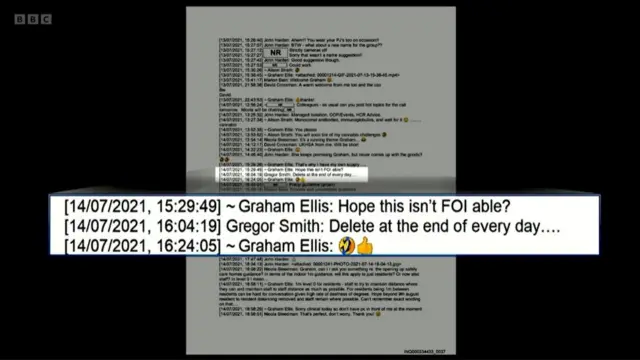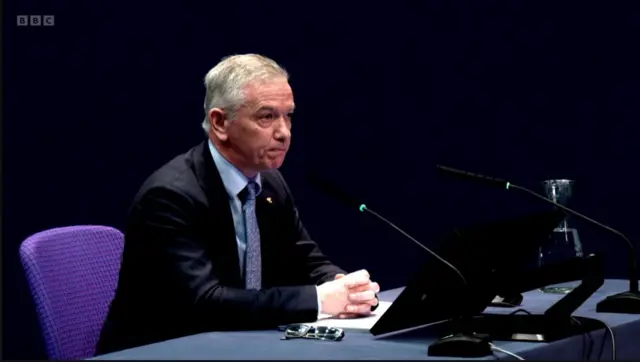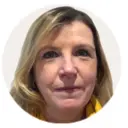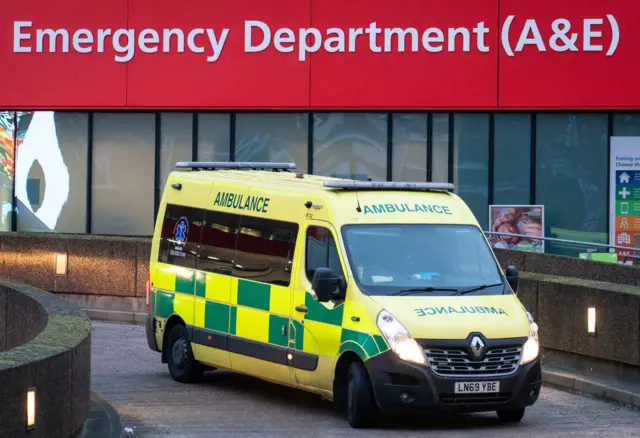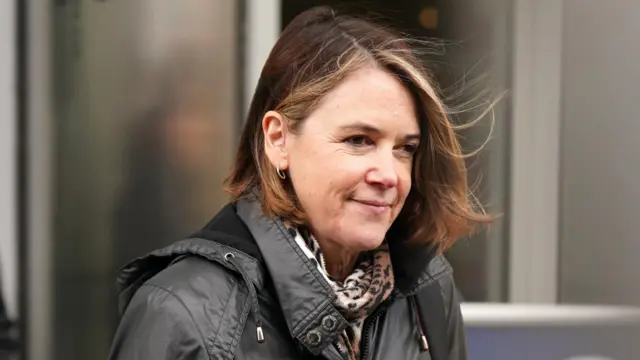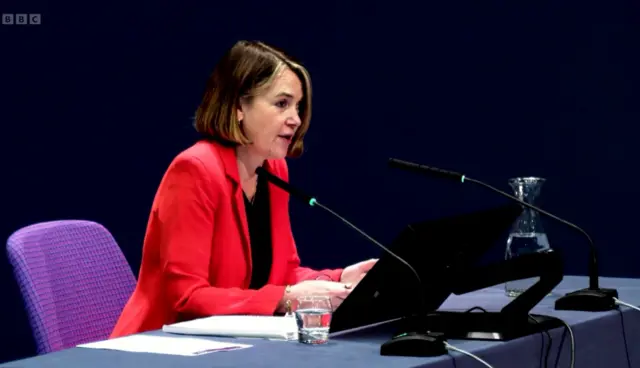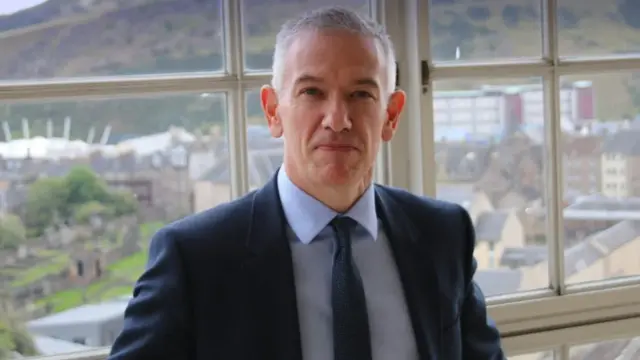Informal messages 'not seen as secure medium'published at 12:48 GMT 22 January 2024
Sir Gregor Smith explains that there was advice given to Scottish government employees which specifically dealt with informal messaging and the need to delete messages on a regular basis.
He said: "There was also advice we were given in discussion with the then director general, reminding us that official business shouldn't be done within these mediums and there should be regular deletion, partly for security purposes and that it shouldn't be seen as a secure medium."
